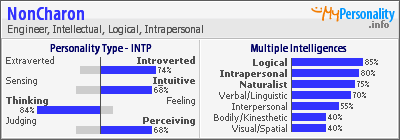
I don't live up to my own standards. I eat too much. I buy food out from people who don't get paid enough, wrapped in plastic and paper that will simply be thrown in the trash immediately after I eat. I drive more than I have to. I occasionally use styrofoam cups because it is easier than going to get a washable cup. I use plastic cutlery out of convenience and then toss it in the trash.
I work for the government. I work for Caesar. I actually had to swear to protect the Constitution of the United States and the Constitution of the State of California. I am a gatekeeper of the Prison Industrial Complex. I work in a situation where I must occasionally recommend that people be sentenced to prison when I know that after they are incarcerated and get out they will be more of a threat to the community as well as being more damaged as people. (Yes, I do believe some people should go to prison.) I make more than the median income in my home community, and I spend every dollar every paycheck.
I live in a three bedroom house with only one other person. I have three televisions in my house and one of them is nearly always on. I don't know my neighbors. I live too far away from the people in my life that matter to have regular contact with them.
I've always played the game with myself that I'm making progress because at least I know I'm not living up to Kingdom standards and that it bothers me.
“The key to understanding this parable lies in grasping how one's very religious convictions can actually fuel actions that would stand opposed to them. In the above example we can imagine the businessman thinking that his faith in Christ and his involvement in a local church are what encourages him to pose certain ethical questions about the industry he works in, questions about the type of investments his bank backs, the damage of debilitating international interest rates, and the greed that fuels so many of the decisions that the bank makes on a daily basis.
“He thinks that it is his faith that pushes him to influence banking decisions in a manner that includes the consideration of moral issues. Although he is a tough and committed businessman who is making a great deal of money, he knows deep in his heart that he is a Christian who does not place his true value on earthly treasure. Indeed, his attempt to influence the bank in ethical ways hint at this deep truth: namely, that he does not take the world of making money and business success too seriously. It is what he does in order to provide for his family and the local church, but it is not who he is.
“However, in contrast to this commonsense view of the situation, let us offers a different interpretation. In contrast to the idea that the man's faith is the deep inner truth that prevents him from fully engaging in a heartless capitalistic drive for wealth, one could say that it is precisely his faith in God that enables him to be a hard-nosed businessman man in the first place. While slightly moderating his drive for financial success at any cost, his supposedly true inner identity simply acts as the fuel that powers his work by allowing him to escape from facing up to the reality of his actions. In Christianity as a religion without religion one cannot make this distinction between one's action and ones beliefs.”
pp. 164-165
Peter Rollins

I'm a putz and I need to do something different with my life.



1 comment:
wow, way to bring it! not only for yourself but for all of us who are trying to be like Jesus day in and day out.
thanks for sharing this challenge and book.
Post a Comment